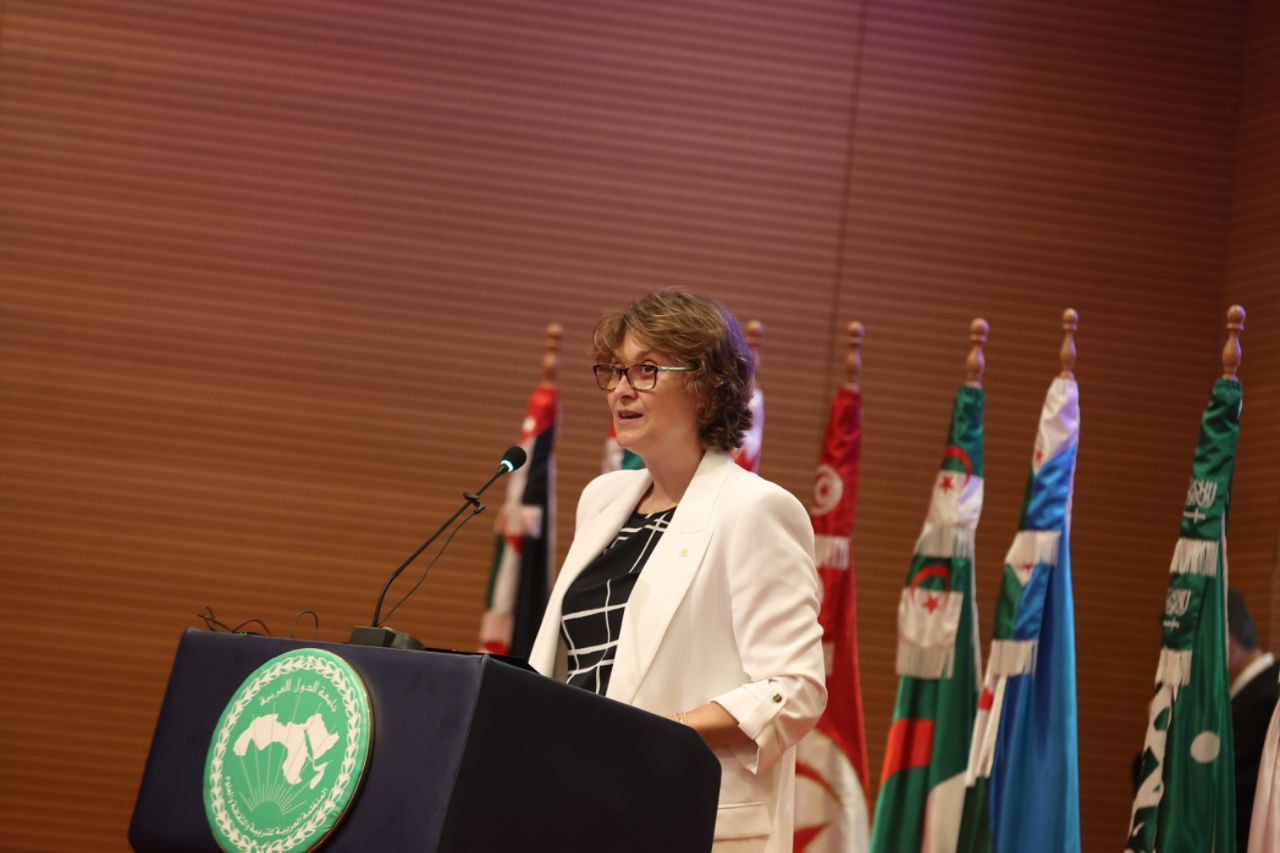- Minister Meritxell Serret, whose trip to Tunisia ends today, took part in the international congress on education organised by ALECSO, the Arab League Educational, Cultural and Scientific Organization
- “Culture is one of the priorities for Catalan foreign action, because it enhances our image and opens doors,” explained Serret, who gave the example of the agreement with ALECSO

The Minister for Foreign Action and European Union, Meritxell Serret i Aleu, took part in an international congress on education organised by ALECSO, the Arab League Educational, Cultural and Scientific Organization, last Thursday. She did so with the Tunisian ministers of Education, Culture and Youth and Sports, who also spoke at the opening of the conference, which was held in Tunis. In her speech, Minister Serret explained that the Government “is about to conclude” an agreement with the Arab League organisation to build bridges between schools in Catalonia and in the Arab world and promote their respective languages and cultures.
This will be Catalonia’s first cooperation agreement with ALECSO, which aims to foster partnerships between education centres in Catalonia and the Arab world. The Ministry for Foreign Action and European Union and the Ministry of Education have been working with ALECSO to conclude a four-year agreement since November 2022. This agreement will involve carrying out projects related to arts and cultural education, education for sustainable development and digital education, among other areas. Last November, an ALECSO delegation visited Catalonia to work on the definition of the agreement, which will be signed in the coming months.
At the opening of the ALECSO conference, which aims to disseminate the Arabic language around the world, Serret also shared her belief that “Catalan makes us unique and raises our profile in the world” and that language “is a factor in the cohesion and identity of territories”. “Culture is one of the priorities for Catalan foreign action, because it enhances our image and opens doors,” explained Serret, who gave the example of the agreement with ALECSO. Other examples are the cooperation agreement signed with UNESCO in 2021, and the fact that Barcelona will host the headquarters of the GIGA programme to connect every school in the world to the Internet.
Minister Serret, who was accompanied by the Director General for Development Cooperation, Yoya Alcoceba, and the delegate of the Government of Catalonia to North Africa, Ahmed Benallal, met the Director General of ALECSO, Mohamed Ould Amar, before attending the international congress.
Commitment to multilateralism
In her speech during the conference, Minister Serret described ALECSO as “a leading multilateral organisation, which acts as a bridge both between Arab countries and between those countries and the world”. Serret stressed the importance of “an interconnected, transparent and inclusive multilateral system,” and highlighted Catalonia’s commitment to this multilateral agenda, which is “the roadmap which will enable us to address the challenges of the twenty-first century.”
As an example of this commitment to multilateralism, the Minister for Foreign Action and European Union highlighted the “fruitful cooperation” between Catalonia and its Mediterranean neighbours “to work for a fairer and more prosperous area.” “Catalonia is one of the first regional governments to establish agreements with multilateral organisations” like ALECSO, said Serret, who expressed her conviction that global challenges like the climate crisis and its consequences such as drought “can only be tackled through the combined efforts of the international community.”
The conference, which was titled “Education for citizenship: tolerance, peace and coexistence as key factors in moving towards sustainable development”, focused on the importance of implementing educational policies that ensure a culture of sustainable development and which foster values for conflict resolution, peaceful coexistence, sustainability and citizen participation.
In this area, “the Catalan Government is fully committed to a strategy involving education for development which is decided on a participatory basis, and which involves the various stakeholders in civil society,” said Serret. “Development education is essential for building critical citizenship and contributing to the Sustainable Development Goals and the culture of peace,” she added.
This afternoon, on her last day in Tunisia, Serret will hold meetings with the Catalan business community based in the Maghreb country, and will visit the Centre des études méditerrannéennes et internationales (CEMI) think tank.
